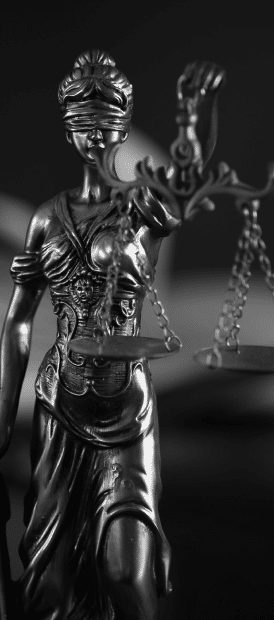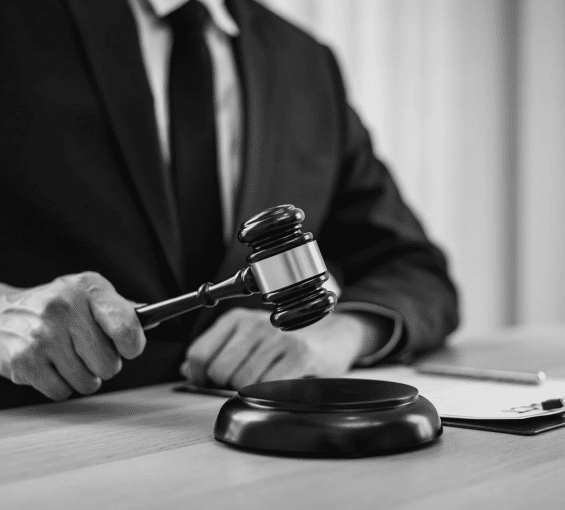No-Knock Warrants
When police shot Breonna Taylor after entering her home without announcing their presence or identifying themselves, the world responded with shock and anger. No-knock warrants are search warrants that authorize police officers to enter a property without first knocking and announcing their presence. Although no-knock warrants are still legal in most states, they pose a serious danger, particularly to Black Americans. The Police Brutality Center fights to protect those who have been injured or lost loved ones due to excessive force and no-knock warrants.
Content Last Updated: March 13, 2025
Waking up to discover that police officers are forcing their way into your home sounds like a nightmare, but it’s become a terrifying reality for many people due to no-knock warrants. These warrants grant law enforcement the right to enter a property without announcing their presence, and they can lead to dangerous or deadly encounters.
The practice drew national attention in 2020 when Breonna Taylor was killed by officers who were executing a no-knock warrant in her home. For many, Taylor’s death was further evidence of how prevalent racism and the use of excessive force are in law enforcement agencies throughout the United States.
Studies have shown that no-knock warrants substantially heighten the risk of police violence and are prone to brutality, misconduct, and discrimination. However, they remain legal in most jurisdictions.
The Police Brutality Center supports people who have been injured or lost loved ones during the execution of a no-knock warrant.
What Are No-Knock Warrants?
Although movies and shows make it seem like police can break through doors and enter properties whenever they want, the real-world process is much more complex. Before entering a residence, officers must secure a warrant granting them the right to search.
Under the Fourth Amendment, officers must also announce their presence by knocking and identifying themselves. However, a judge can issue a no-knock warrant that waives these requirements if there is probable cause to believe that a suspect presents a danger or might destroy evidence.
History of No-Knock Warrants
The origins of no-knock warrants can be traced back to the 1970s and President Richard Nixon’s “war on drugs.” This controversial initiative was touted as an attempt to reduce the use, distribution, and sale of illegal drugs in the United States.
The war on drugs gained significant momentum in the 1980s under President Ronald Reagan, culminating with the passage of the Anti-Drug Abuse Act of 1986. This legislation established mandatory minimum prison sentences for certain drug offenses and led to widespread acceptance of no-knock or quick-knock raids.
The use of no-knock raids has been viewed by many as a major step toward militarizing the police. Rather than treating the public and criminal suspects as human beings with rights, they’re treated as enemies.
The growing frequency of no-knock warrants has increased this fear. Some studies estimate that police execute up to 60,000 no-knock and quick-knock raids yearly. Past studies found that the number of warrants shockingly increased from 1,500 in the early 1980s to 40,000 by 2000.


When Are No-Knock Warrants Used?
No-knock warrants are typically issued for drug-related crimes. Supporters of these warrants justify them by arguing that entering a property unannounced prevents suspects from destroying or disposing of an illegal substance.
Proponents also argue that no-knock warrants help protect police officers from violence. When they enter unannounced, suspects don’t have an opportunity to arm themselves, escape, or begin firing weapons.
Studies have proven that the opposite is true. Because they surprise and frighten individuals by entering in a way that seems violent or aggressive, police make the situation more volatile and thus more dangerous. History has shown that they also create an environment where police brutality and harm to innocent victims are more likely.
This really just depends upon the jurisdiction. So for example, in New York, you can have a no-knock warrant, but in other jurisdictions you may not. So again, this is very, very specific to local state law.
What Are the Laws Regarding No-Knock Warrants?
People often ask whether no-knock warrants are legal. Although the laws differ by location, these warrants are allowed in most states. However, the pushback against them has gained traction in recent years. The most significant developments include:
- Statewide bans: Connecticut, Florida, Oregon, and Virginia are the only states that have instituted a full ban against no-knock warrants.
- Local bans: Some cities, including Breonna Taylor's hometown of Louisville, have also eliminated them.
- National policies: On the national level, the U.S. Department of Justice released a policy in 2021 that limits the use of no-knock entries.
- Proposed federal legislation: In March 2022, Rep. Ilhan Omar introduced the Amir Locke End Deadly No-Knock Warrants Act.
Despite this progress, no-knock warrants remain common across the country. Until there is more consistent legislation in place, citizens remain at risk.

How Dangerous Are No-Knock Warrants?
No-knock warrants may have been designed to protect police, but they’ve generated fear among the public. The severity of the dangers they present becomes clearer when you look at recent statistics:
- Experts estimate that there are 20,000 no-knock raids conducted every year in the United States.
- Between 2010 and 2016, 81 civilians and 13 law enforcement officers died while executing no-knock warrants.
- A study in Louisville found that 82 percent of suspects targeted by no-knock warrants from 2018 to 2020 were Black.
- An investigation in Minneapolis revealed that all the no-knock warrants executed between September 2021 and January 2022 targeted people of color.
The disproportionate use of no-knock warrants against people of color reflects a larger issue of racism within the criminal justice system. Racial profiling, police brutality, and no-knock warrants have combined to create a culture of fear and distrust.
Instances of Police Brutality During No-Knock Warrants
The concept of no-knock warrants becomes more distressing when you examine specific cases. The deaths of Breonna Taylor and Amir Locke, in particular, have raised alarms about the dangers of executing these raids.
Breonna Taylor
On March 13, 2020, Breonna Taylor was asleep in her apartment when police entered without warning. They were conducting a raid based on their belief that her ex-boyfriend might have kept illegal drugs in the home. They shot her multiple times as she stood in the hallway.
Taylor died from her injuries, sparking a national outcry against racial injustice and police violence. Those feelings grew when a grand jury in Kentucky declined to charge officers for her death.
Fortunately, the Justice Department charged the four officers involved with federal crimes, including the use of excessive force. In addition, in June 2020, the city of Louisville passed Breonna’s Law, which banned no-knock warrants.
Amir Locke
Nearly two years after Breonna Taylor’s death, the shooting of Amir Locke in Minneapolis, Minnesota, served as a stark reminder that no-knock warrants remain a threat. On February 2, 2022, police executed a warrant in a homicide investigation. Locke was not a suspect.
Bodycam video showed that a police officer shot Locke within seconds of entering the residence, yet no charges were filed against the officer. Outraged members of the public held major protests in response to the shooting and the lack of accountability for the officer.
The context of Locke’s shooting makes the incident even more troubling. He was killed in the same city where police murdered George Floyd in May 2020. In August of that same year, the Minneapolis’ mayor and police chief announced that they would require all police officers to announce their presence before executing a warrant—a policy that obviously wasn’t enforced on the night of Locke’s shooting.
Mental Effects of No-Knock Warrants
People who survive no-knock warrants rarely walk away unharmed. Although they may not have fatal injuries, they experience long-term psychological effects and constant fear that it will happen again to themselves or someone they know. Witnesses of these raids, especially children, have also shown signs of severe distress, including:
- Post-traumatic stress disorder
- Depression
- Anxiety
- Paranoia
- Restlessness
If you or a loved one have suffered harm due to a no-knock warrant, the Police Brutality Center can help provide you with legal guidance. Contact us to get legal help.

